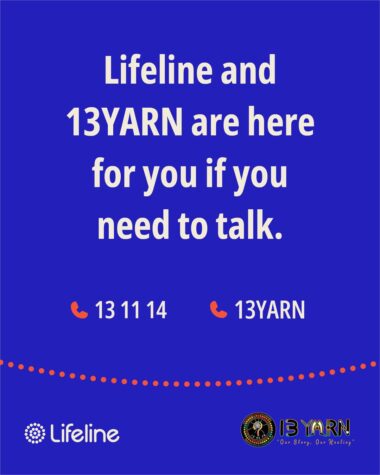Inclusion and flexibility are key to protecting employee mental health, according to new research from Diversity Council Australia.
To mark World Suicide Prevention Day (Sunday 10 September) and R U OK Day (Thursday 14 September) DCA has released new data from its upcoming 2023 Inclusion@Work Index to bring awareness to the impact of workplace inclusion on mental health.
In a workplace context, inclusion occurs when a diversity of people (e.g. of different age, race, cultural and religious backgrounds, gender, sexual orientation etc.) feel respected, valued, and able to contribute and progress at work.
Early release data from DCA’s 2023 Inclusion@Work Index found that inclusion in the workplace is linked to better mental health, with workers in inclusive teams six times more likely to report work had a positive impact on their mental health (57% in inclusive teams, compared to 9% in non-inclusive teams).
The data revealed company culture and management play a significant role, indicating that workers with inclusive organisational climates and managers were nearly four times more likely to report that work had a positive impact on their mental health.
Flexibility was also found to positively impact employee mental health, which is understandable given the important role flexible working options play in inclusive workplaces. Workers who had access to the flexibility they needed to manage work and other commitments were almost four times more likely to feel their work positively impacted their mental health (45% vs. 12%).
Unsurprisingly, exclusion was found to negatively impact mental health, with workers who experienced discrimination and/or harassment at work twice as likely to report their workplace had negatively impacted their mental health (49%), compared to those who had not (21%).
DCA CEO Lisa Annese said organisations need to understand the value of fostering more inclusive and diverse workplaces when it comes to mental health.
“How we are treated at work can have a significant impact on our mental health,” she said.
“If you don’t feel valued and respected at work, it can have major knock-on effects on your personal life and your mental wellbeing.
“The data clearly shows that organisations with a strong focus on diversity and inclusion tend to have a positive effect on employee mental health.
“If you treat people with dignity and respect, have a zero-tolerance approach to bullying and harassment, create some flexibility and have a supportive management environment people flourish.”
[ENDS]
Media Contact: Ali Coulton, [email protected].
Note: Diversity Council Australia’s Inclusion@Work Index findings come from a nationally representative sample of 3000 respondents, all working in Australia. The 2023 data included above comes from our upcoming Inclusion@Work Index which will be released in October. The upcoming report will be DCA’s fourth Inclusion@Work Index, which started in 2017 and provides national benchmarks for Australian workplaces on diversity and inclusion.
Findings summary:
Our findings show inclusion – whether in teams, leaders, or the organisational culture – is linked to better mental health at work. Specifically, workers in inclusive teams were:
- Six times more likely to report that work had a positive or very positive impact on their mental health in the past 12 months (57% in inclusive teams, compared to 9% in non-inclusive teams).
Inclusive managers and organisational climates can have a positive impact on our mental health. The data showed that workers:
- with inclusive managers were nearly four times more likely to report that work had a positive or very positive impact on their mental health (53% with inclusive managers, compared to 14% with non-inclusive managers)
- in inclusive organisational climates were nearly four times more likely to report that work had a positive or very positive impact on their mental health (50% in inclusive organisational climates, compared to 13% in non-inclusive organisational climates).
Conversely, exclusion can negatively impact our mental health:
- Workers who experienced discrimination and/or harassment at work in the last 12 months were twice as likely to report their workplace had negatively or very negatively impacted their mental health (49%), compared to those who had not experienced discrimination/and or harassment (21%).
The research also found that access to flexible working options makes a big difference to our mental health:
- Workers who agreed or strongly agreed they had the flexibility needed to manage work and other commitments were nearly four times more likely to feel work had a positive or very positive impact on their mental health (45%) than those who disagreed that they had the flex they need (12%).
About DCA: Diversity Council Australia is the independent not-for-profit peak body leading diversity and inclusion in the workplace. We provide unique research, inspiring events and programs, curated resources and expert advice across all diversity dimensions to a community of over 1,200 member organisations. Our member organisations are estimated to employ nearly two million Australians, representing up to 20% of the workforce.

